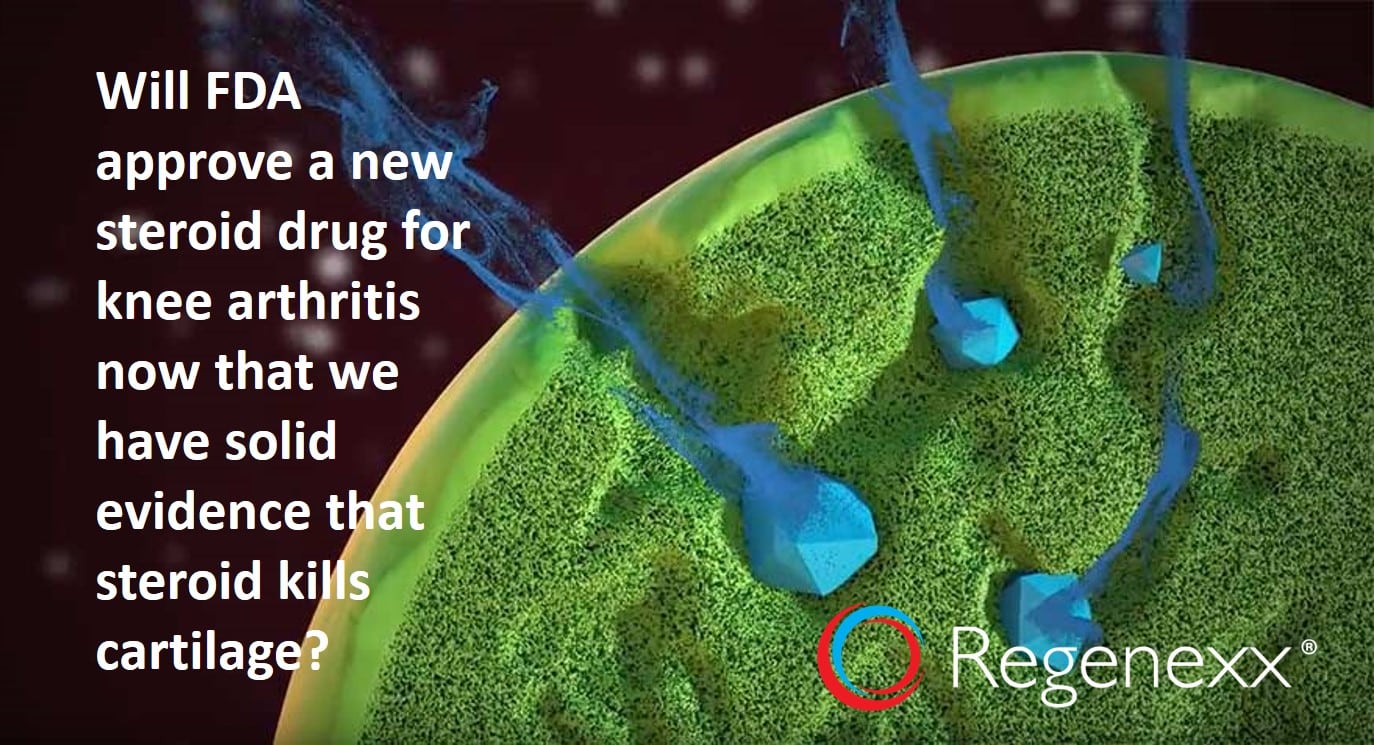Last month, a high-level research study confirmed what we’ve known for years: the anti-inflammatory steroid that the average family doctor, pain-management specialist, or orthopedic surgeon is injecting into your knee is killing the cartilage. So that research should put the whole steroid injection thing to bed, right? Nope. Surprisingly, this week, a company called Flexion has announced the completion of a clinical study for a high-dose, long-acting steroid drug called Zilretta to treat knee arthritis. They also expect prompt approval of said drug in October. Huh? How is it possible that such a drug could ever be approved through the FDA now that we have evidence that steroids kill cartilage? It’s a great example of just how screwed up our drug-approval process has become.
Steroids Kill Cartilage
Steroids are still a mainstay injection treatment for knee arthritis. Despite this, we’ve had lab and animal evidence for many years that show that steroid shots are toxic to cartilage cells. However, this past month, a high-level research study demonstrated that steroid shots don’t help knee-arthritis pain and cause accelerated cartilage loss. This finding is consistent with the rest of the research.
So this would seem to be the end of the line for injecting steroids into joints, right? Wrong. Since steroids are covered by insurance and coverage often determines medical practice patterns more than what’s best for the patient, steroids are still being injected into joints with wild abandon. Not only is this crazy practice not going away, a small pharma company is doubling down on the concept. Let me explain.
What Is Zilretta?
Zilretta is a crystalline form of a corticosteroid called triamcinolone.The steroid crystals are embedded in a gel (PLGA) and then formed into microspheres (little balls). The idea is that the steroid crystals will slowly dissolve over time because the matrix breaks down slowly. Like any good pharma company playing the game, the company (Flexion Therapeutics) has lined up “thought leaders” (read compensated physician cheerleaders) and has apparently completed a Fast Track pivotal trial and is anticipating FDA approval in October.
If a Little Steroid Is Toxic, Let’s Just Add More!
How could the FDA approve a long-acting, even higher-dose form of steroid to inject into arthritic knees? Why wouldn’t this company fold as soon as the powerful study on knee steroid side effects, mentioned above, was published? Welcome to the American pharma industry! If the company gets Fast Track approval this fall, then we know that the FDA approval process is a stacked deck. If the agency does the right thing, which is to cite the safety concerns and cartilage toxicity of the steroid ingredient of the new drug, then we know the agency is doing its job. Only time will tell.
The upshot? Steroids are bad news and high-dose long-acting steroids are even worse. Will we see Zilretta on the market? Here’s to hoping that the FDA does the right thing. http://iGalen.rocks/HGD3



